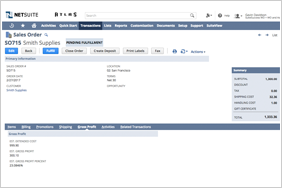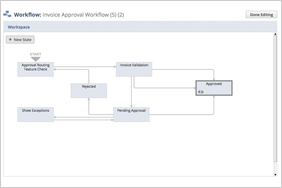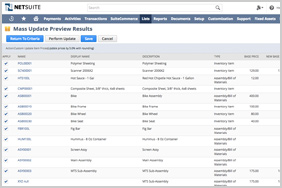Sales Order Management & Processing
Automate your entire order to cash flow by removing bottlenecks and optimizing processes to deliver on-time
The process of taking, approving, scheduling, tracking, fulfilling and being paid for orders is the lifeblood of your business. NetSuite’s Advanced Order Management functionality provides unrivalled visibility into the process and helps automate many tasks to ensure that you are keeping your customers happy by hitting defined service levels, delivering on-time and from the most economical or geographically appropriate location. All of this is achieved by maintaining some simple rules allowing your users to concentrate on exceptions.
Features
Gross Profit Analysis
Optimize profitability on an order by order basis with NetSuite’s real-time gross profit analysis functionality. Choose from multiple methods to establish item costs including last receipt, average, standard and defined to see estimated gross profitability percentages on the order as it is being entered. Each line on the order can then be identified as being at risk of challenging your company’s profitability standards.
Key Capabilities:
- Real-time costing and gross profit information
- Trigger approvals based on company policy
- Calculate commissions based on sales performance

Workflow Approvals
The SuiteFlow engine is an easy to use workflow design and monitoring tool that allows you to define your workflow approvals using a drag-n-drop interface. The workflow tool has the ability to interact with all of the other transactions, records and forms in NetSuite to allow you to easily enforce company approval policies and handle complex multi-tiered approval hierarchies.
Key Capabilities
- Drag-n-drop interface
- Real-time monitoring and approval handling
- Allows you to tailor NetSuite to your own business flow

Automated Pricing Updates with Rounding
When you need to apply changes to your existing pricing structure, NetSuite’s easy to use update tools walk you through identifying items that need to be re-priced, applying % or $ increases / decreases, establishing rounding rules and allowing you to preview the changes before applying.
Key Capabilities:
- Real-time updates with previews
- Definable rounding rules
- Easy to follow pricing update process






























